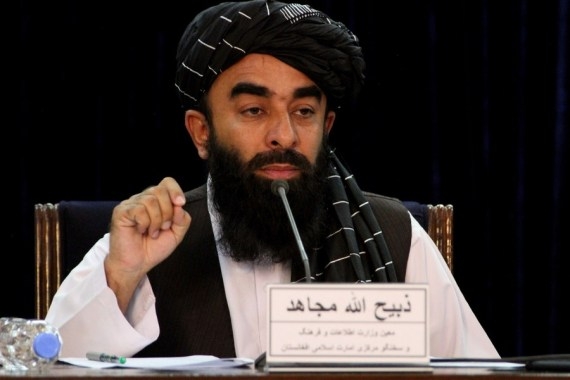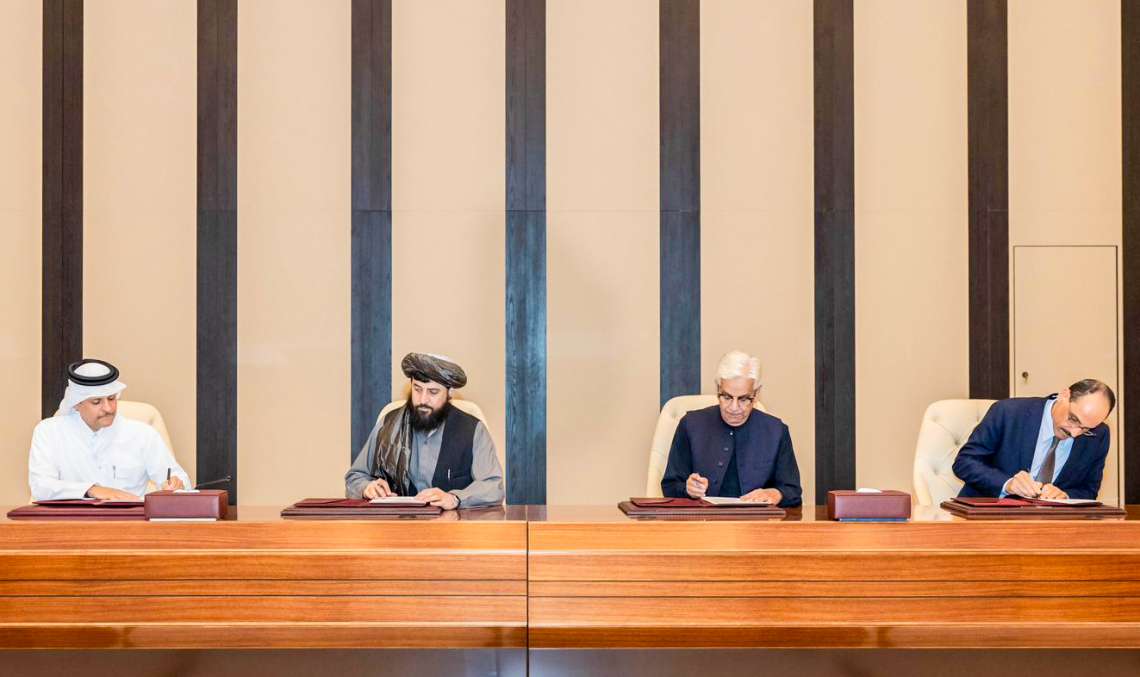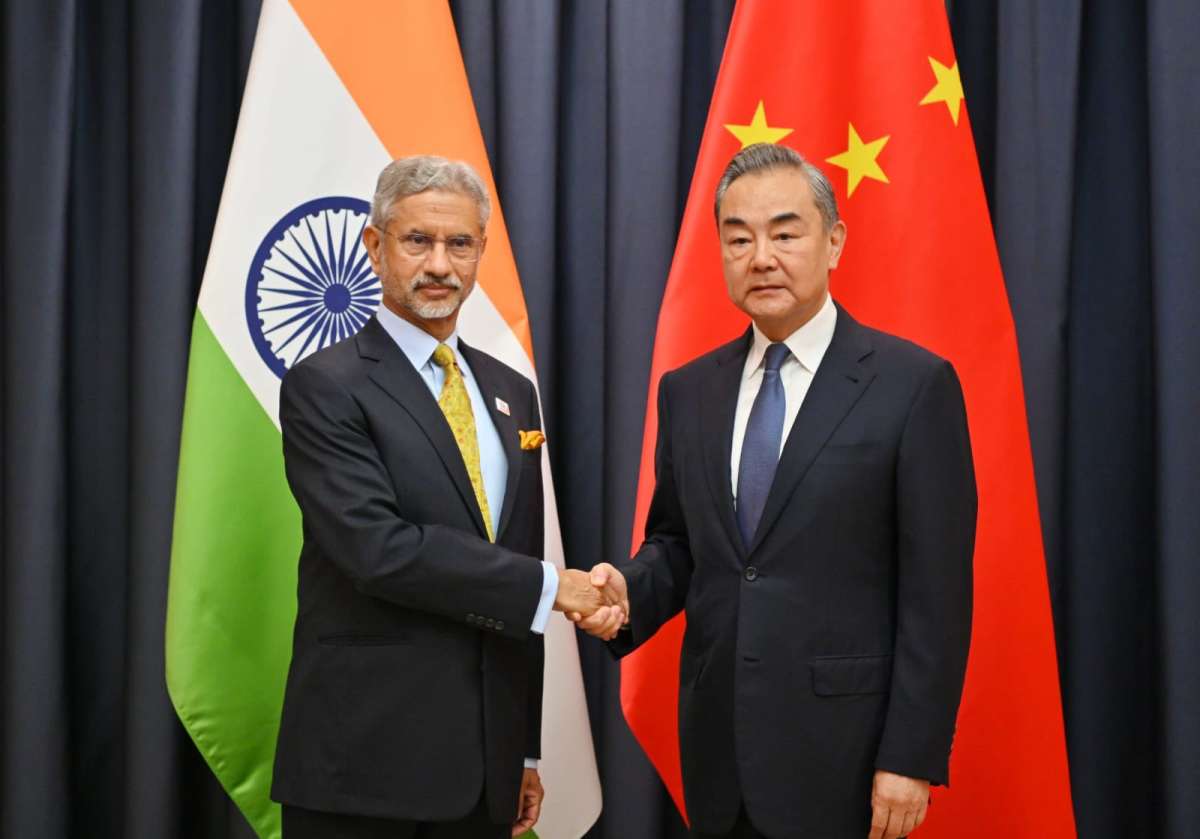Taliban spokesperson emphasised the importance of American citizens to the US, paralleling the significance of Afghan detainees to Afghanistan…reports Asian Lite News
Two American prisoners are currently held in Afghanistan, confirmed by Taliban spokesperson Zabihullah Mujahid on Wednesday.
Discussions about exchanging these prisoners for Afghans held in Guantanamo Bay have been underway with the United States, Mujahid stated at a press conference in Kabul.
While Mujahid did not disclose the names of the American prisoners, he referenced ongoing negotiations held during United Nations-led talks in Qatar.
He emphasised the importance of American citizens to the US, paralleling the significance of Afghan detainees to Afghanistan.
The detainment includes an American woman among at least 18 International Assistance Mission (IAM) staff arrested on allegations related to Christian missionary work.
Concerns have been raised about the health of aid worker Ryan Corbett, who has been in Taliban custody since 2022, prompting calls for immediate medical access.
The situation underscores ongoing international concerns about travel to Afghanistan, with numerous countries, including the US, cautioning against it due to risks such as wrongful detention and violence.
Mujahid highlighted that Afghan prisoners, including those held in Guantanamo Bay, are part of the discussions for prisoner exchanges.
The US has faced criticism over the years for its handling of Guantanamo Bay detainees, many of whom were held without charge or legal recourse.
While efforts have been made to reduce the detainee population and eventually close the facility, challenges persist regarding human rights and legal proceedings for those held there.
In June, Taliban rulers said that they are open to cooperating with the German government on the deportation of Afghan criminals back to the country.
German Chancellor Olaf Scholz said that he wanted to see the swift deportation of criminals back to countries deemed unsafe by the government in Berlin, including Afghanistan and Syria.
The initiative comes after outrage was triggered by the recent killing of a police officer by an Afghan national in Germany. The attack took place at a rally held by an anti-Islam group in the western city of Mannheim.
“Such criminals should be deported – even if they come from Syria and Afghanistan,” Scholz told the Bundestag or the lower house of the Parliament.
Kabul responded to the German leader’s remarks. “The Islamic Emirate of Afghanistan calls upon the German authorities to address through normal consular engagement and an appropriate mechanism based on bilateral agreement,” Taliban Foreign Ministry spokesman Abdul Kahar Balchi posted on X.
Germany has not sent anyone back to Afghanistan since the Taliban takeover in August 2021. Even before that, the agreement was that only men – especially criminals and those deemed terrorist threats – would be forcibly returned due to the difficult security situation.
Critics warn against talks with the Taliban, who are currently internationally isolated.
According to Thomas Ruttig, the co-founder of the Afghanistan Analysts Network, the Taliban could benefit from deportations by using them as an opportunity to cooperate with a Western state, which could be seen as a boost to their reputation.
The German refugee advocacy group Pro Asyl has condemned Scholz’s initiative.
“International law clearly prohibits any deportations to Afghanistan and Syria,” Pro Asyl’s managing director Karl Kopp told the Augsburger Allgemeine newspaper in remarks published on Friday.
Kopp described Scholz’s proposed plans as unlawful because “both countries are known for their use of torture and inhuman punishments.”
A diversion via Afghanistan’s neighbouring countries, such as Pakistan, is also currently being considered by the German government.
However, the Taliban reject this possibility. Extraditions to third countries would be a violation of current conventions, the Foreign Ministry spokesman emphasised in his statement.
So far, no country has officially recognised the Taliban government. Western states demand that human rights, and especially women’s rights, be respected in the country before recognition is granted.
ALSO READ:














